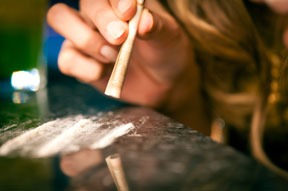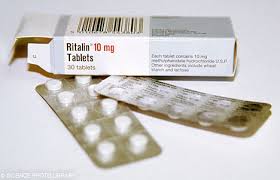Should I be Getting Treatment for Crack Addiction?
As one of the most powerful stimulant drugs on the market, cocaine addictions have wreaked havoc in more than a few peoples’ lives. Crack, a crystallized form of cocaine, likewise carries its own addictive potential. Not surprisingly, treatment for crack addiction involves the same types of interventions and treatment approaches used for cocaine addiction treatment.
If you’ve used crack for any length of time, you’ve probably noticed a few subtle changes taking place health wise, along the way. Prolonged crack use also brings about certain shifts in a person’s personality and outlook on life.
Like cocaine, crack addictions can quickly go from bad to worse within a fairly short period of time. Ultimately, whether or not you need treatment for crack addiction depends on how the drug has impacted your daily life.
After using crack for so long, signs and symptoms of crack addiction tend to come on hard and fast, leaving addicts helpless to do anything about it. Considering how crack can alter the way a person’s mind thinks, it’s not uncommon for friends and family to be the first ones to notice something’s terribly wrong. At this point, the addict can either get treatment for crack addiction or continue to ride the emotional roller coaster of addiction.
Crack vs. Cocaine

Crack and Cocaine differ in a variety of ways.
Cocaine and crack differ in their physical appearance and overall drug effects. Crack is made by cooking cocaine powder and baking soda or ammonia together. The final product takes the shape of a crystallized rock that houses cocaine ingredients in concentrated form.
Cocaine can either be snorted in pure form, combined with marijuana and smoked or combined with heroin and injected, whereas crack is normally smoked. Smoking crack delivers the full effects of the drug to the brain within seconds. This method of use and its fast delivery system makes for a much more addictive substance than if cocaine were snorted in pure form.
As far as rate of addiction or addiction potential, a person can become addicted to crack as of the first time using the drug, according to the University of Maryland. Likewise, the intensity of the drug’s “high” brings on more intense withdrawal effects than with cocaine.
Ultimately, anyone who’s used crack on a frequent basis for a week or longer may want to consider getting treatment for crack addiction. This drug’s addiction potential, coupled with the damage done to brain function leaves addicts unable to abstain from ongoing use without some form of treatment for crack addiction in place.
Physical Effects of Crack
Like cocaine, crack acts as a central nervous system stimulant, increasing the rate at which the brain and central nervous system regulate bodily functions. Like other addictive substances, the brain develops an increasing tolerance for crack with continued use.
Crack’s high addiction potential sees brain tolerance levels rising at a much faster rate than other types of addictive drugs, such as opiates or sedatives. Once tolerance levels reach a certain point, users start to experience withdrawal effects on a frequent basis. Treatment for crack addiction starts out by breaking the drug’s physical hold over the body. Detox treatment for crack addiction helps addicts overcome the often distressing withdrawal effects that develop when stopping drug use.
Withdrawal effects may take the form of:
- Extreme feelings of anxiety
- Irritability
- Loss of energy
- Intense drug cravings
- Restlessness
These reactions result from depleted neurotransmitter levels in the brain. In effect, crack forces the brain to produce large amounts of dopamine , a vital neurotransmitter chemical. Over time, brain chemical imbalances worsen to the point where the brain can no longer regulate bodily processes on its own.
As withdrawal effects can be quite uncomfortable, detox treatment for crack addiction uses medications to help relieve the severity of symptoms and make the process more bearable. For many crack addicts, getting treatment for crack addiction is the only way they can make it through the detox stage.
Psychological Effects of Crack
Crack’s effects on the brain’s chemical make-up inevitably impair cognitive functions and ultimately start to reconfigure how the brain thinks. These effects can last much longer than the actual physical effects that come with crack abuse. For these reasons, much of the time spent in treatment for crack addiction entails undoing the psychological aftereffects of the drug.
Growing chemical imbalances in the brain form the starting point for overall psychological dysfunction to take root. Psychological dysfunction may manifest as:
- Hallucinations
- Problems controlling one’s impulses
- Memory loss
- Feelings of paranoia
- Violent behaviors
- Feelings of rage
- Problems focusing or concentrating
As the physical damage brought on by crack use worsens, a person’s psychological well-being sees further decline. This cycle will continue for as long as a person keeps using the drug. Without treatment for crack addiction, continued drug use can quickly diminish a person’s overall physical and mental well being.
Signs & Symptoms that Warrant Getting Treatment for Crack Addiction
According to the National Institute on Drug Abuse, a drug’s addiction potential is best measured by how quickly it takes effect as well as by the intensity of effects. Likewise, signs and symptoms of crack addiction also take shape early on.
Someone in need of treatment for crack addiction will start to exhibit the following symptoms –
- Considerable weight loss – crack’s stimulant effects decrease a person’s appetite while increasing his or her energy levels
- Insomnia – growing brain chemical imbalances disrupt sleep cycles, which require certain neurotransmitter chemicals be available for use
- Extreme mood swings
- Tics or twitches
- Fatigue
Signs of crack addiction have more to do with a person’s thoughts, emotions and behaviors. Someone in need of treatment for crack addiction will exhibit the following signs:
- Feelings of paranoia – as brain chemical imbalances worsen, cognitive and emotion-based functions start to break down producing irrational thinking patterns and distorted emotional responses
- Denial – as brain chemical functions become more so dependent on crack’s effects, addicts start to protect and defend drug-using behaviors
- Money problems – from having to finance a crack habit
- Legal problems – driving violations, stealing money and/or valuables
- Loss of interest in once enjoyed activities
- Relationship conflicts
When all is said and done, the overall effect of crack in your daily life becomes the best indicator of whether you should be getting treatment for crack addiction.



